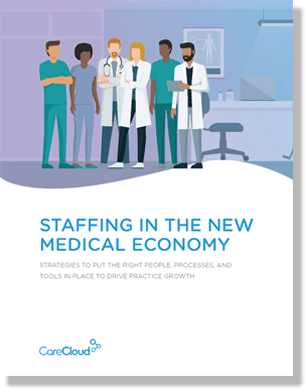The healthcare industry has undergone a prominent transformation in recent years, shifting its focus from quantity to quality. This major shift has given rise to value-based healthcare (VBHC), one of healthcare professionals’ most important traits. In value-based healthcare, there are two crucial elements known as electronic health records and revenue cycle management. This comprehensive guide will explore these elements in depth, provide real-value examples, and discuss the value-based healthcare model.
What is value-based healthcare?
Value-based healthcare is a healthcare delivery and reimbursement model that prioritizes the quality and efficiency of care over the volume of services. Health management, patient education, and regular monitoring focus on identifying and preventing health issues before they require treatment, and the health results achieved determine value.
A patient’s outcome and improved health show how much a doctor, hospital, and other healthcare professionals are dedicated. Value-based healthcare offers a proactive strategy instead of the current standard and fee-for-service models that respond to health issues. According to the National Institute of Health, the improvement in patients’ health is measured by the value of healthcare, so its importance is non-negotiable.
Elements of a Value-based Healthcare Framework
Patient-Centered Care
Value-based healthcare involves meeting patient needs and preferences and emphasizes shared decision-making, communication, and care plans.
Outcome Measurement
Patients’ satisfaction, health outcomes, and cost-effectiveness are key metrics to measure the value delivered by healthcare providers. Also, data-driven analysis helps identify areas for improvement.
Care Coordination
Strong communication and collaboration among healthcare providers are paramount because they prevent redundant tests, minimize errors, and ensure a seamless transition between phases.
Payment Reform
The transition from free-for-service to alternative payment models, such as bundled payments, is the basis of value-based healthcare. These models align with the values and encourage efficient resources.
Difference Between Value-Based Healthcare and Fee-for-Service Models
Healthcare professionals were compensated according to the quantity and quality of their services under the old fee-for-service reimbursement system. Many physicians have been encouraged to handle more patients and prescribe more tests and treatments to increase their chances of being paid more. These prices are based on what private commercial payers would be willing to pay for comparable therapies. Service rates were also unbundled, meaning each service had its own expenses.
Exploring Value-Based Healthcare Solutions
Revenue Cycle Management
Using medical billing service, healthcare facilities use revenue cycle management (RCM) to monitor patient care, from registration and appointment scheduling to payment. RCM combines the commercial and clinical aspects of healthcare by merging demographic data, such as a patient’s identity, insurance provider, and other personal information, with the treatment a patient gets and their healthcare data.
You can use CareCloud’s comprehensive, technology-enabled solution to transform your revenue cycle. We revolutionize your revenue cycle management (RCM) process by coupling our exceptional RCM services with cutting-edge cloud-based software.
We provide adaptable solutions that meet your needs and preferences. Whether you want to control specific RCM solution, increase the size of your RCM team, or need specialized assistance, we provide a solution that perfectly aligns with your needs.
Electronic Health Records
The digital version of a patient’s paper chart is called an electronic health record or cloud-based EHR. EHRs are patient-centric, real-time records that allow authorized users to access information immediately and securely. An electronic health record (EHR) system displays a broader view of a patient’s care and the clinical data collected in an organization, even though it contains a patient’s medical and treatment histories.
The cloud-based EHR solutions from CareCloud perfectly align with your practice’s specific requirements and are user-friendly and secure. Our cloud-based EHRs can enhance your operations, improve clinical decision-making, and boost patient outcomes with features like seamless patient recording, automated billing, and real-time data analytics.
By providing useful data for analytics, you may increase patient involvement and improve the efficiency of treatment outcomes. We help you enable quick and focused judgments that will enhance clinical results.
Benefits of Value-Based Healthcare
Let’s dive into the exclusive benefits of high-quality, value-based healthcare solutions to help your organization reach new heights.
- Focus on improving patient outcomes, leading to better quality care.
- Cost reduction by emphasizing healthcare and reducing unnecessary medical expenses.
- Promote preventive and proactive healthcare, leading to better management.
- Lower costs for payers and less physician burnout.
- Encouraging collaboration among professionals ensures a coordinated approach.
- Aligning payment structures with value-based objectives and motivating professionals to focus on quality.
Conclusion
Value-based healthcare is all about providing better patient care in a new way while keeping the cost reasonable. It is like focusing on quality over quantity, and that’s what we do at CareCloud. We have the right tools to make value-based healthcare exceptional. Our comprehensive suite of healthcare management solutions, including RCM and cloud-based EHR, is designed to align with value-based healthcare principles. Choose CareCloud to take your healthcare services to the next level.



